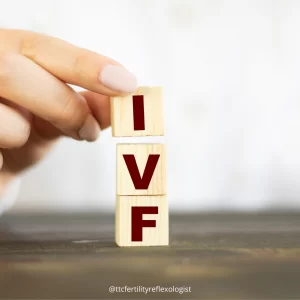
As a specialist in providing reflexology designed to assist with TTC, fertility, and wellbeing for people in the Weymouth, Poundbury, and the wider Dorset area, I spend a lot of time discussing different fertility treatments with clients. These include IVF (In-Vitro Fertilisation), IUI (Intra-Uterine Insemination), and ICSI (Intracytoplasmic Sperm Injection).
Of course, many people know about IVF, but if you are seeking reflexology as part of your fertility treatment, or just want general advice regarding fertility support, you might be unsure about which specific fertility treatment is most suitable for you. It can feel a bit intimidating to decide. To help you choose the right course of action, this blog post walks you through the differences between IVF, IUI, and ICSI.
IVF
The most commonly employed fertility treatment, IVF involves using fertility drugs to produce mature eggs that are then fertilised in a laboratory with sperm from your partner/a donor. The sperm and eggs are placed in a special dish, with the highest-quality resultant embryo being placed into the uterus to grow for pregnancy. Additional embryos (if created) can be stored for future treatment cycles.
IVF is used to assist with all types of conception processes, but is particularly useful for women with certain fertility problems, such as damaged Fallopian tubes or low egg reserves. It can also be used when working with donors, surrogates or after unsuccessful rounds of IUI.
IUI
Couples who are trying to conceive may start with IUI before turning to IVF treatment. The process involves inserting a sperm sample into the uterus at peak ovulation. Direct fertilisation at ovulation, with the reduced 'travel time' for sperm can increase the chances of successful pregnancy. Some IUI cycles are 'boosted' with ovulation drugs to improve hormone levels around the natural ovulation time. You may have to have scans to see how a follicle is developing, and to time when the IUI procedure will take place.
IUI is essentially designed to give the sperm a better chance of reaching the egg compared to sexual intercourse. The treatment is usually recommended to couples who have had difficulty conceiving but aren’t experiencing any structural fertility problems, or for those who require donor sperm, including same sex female couples.
ICSI
ICSI serves as part of the IVF procedure and entails extracting the healthiest sperm from a sample and injecting it directly into an egg for fertilisation. In this sense, it is a more precise form of treatment and is used primarily for helping men with fertility issues such as low sperm count or substandard sperm mobility to achieve fertilisation and creation of quality embryos.
If you've been considering holistic support alongside IVF, IUI, or ICSI as part of your fertility treatment, I would love to chat with you. I offer professional guidance for those needing help with TTC and fertility issues in Weymouth and the surrounding areas in Dorset, as well as online using virtual consulting. Feel free to reach out at any time, using the contact form or booking your free call.
